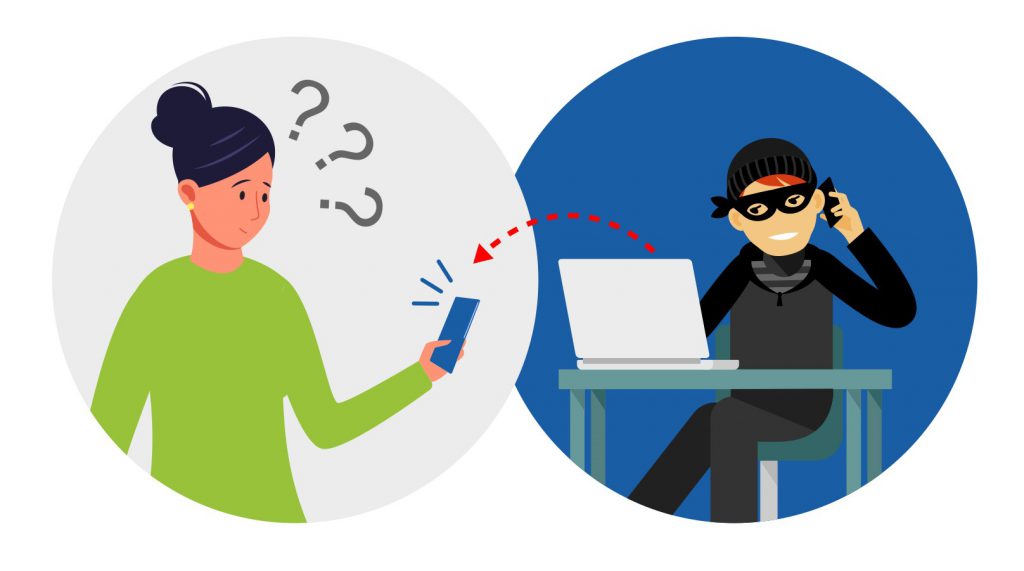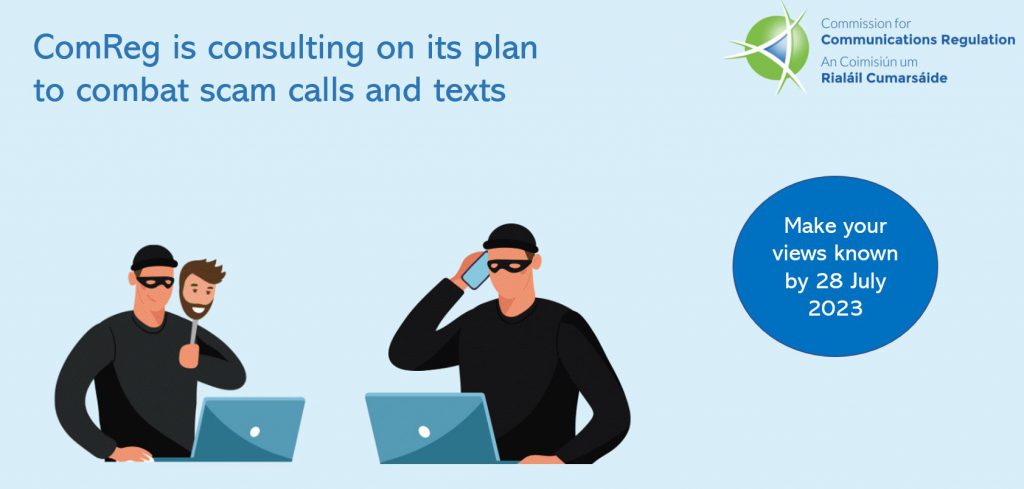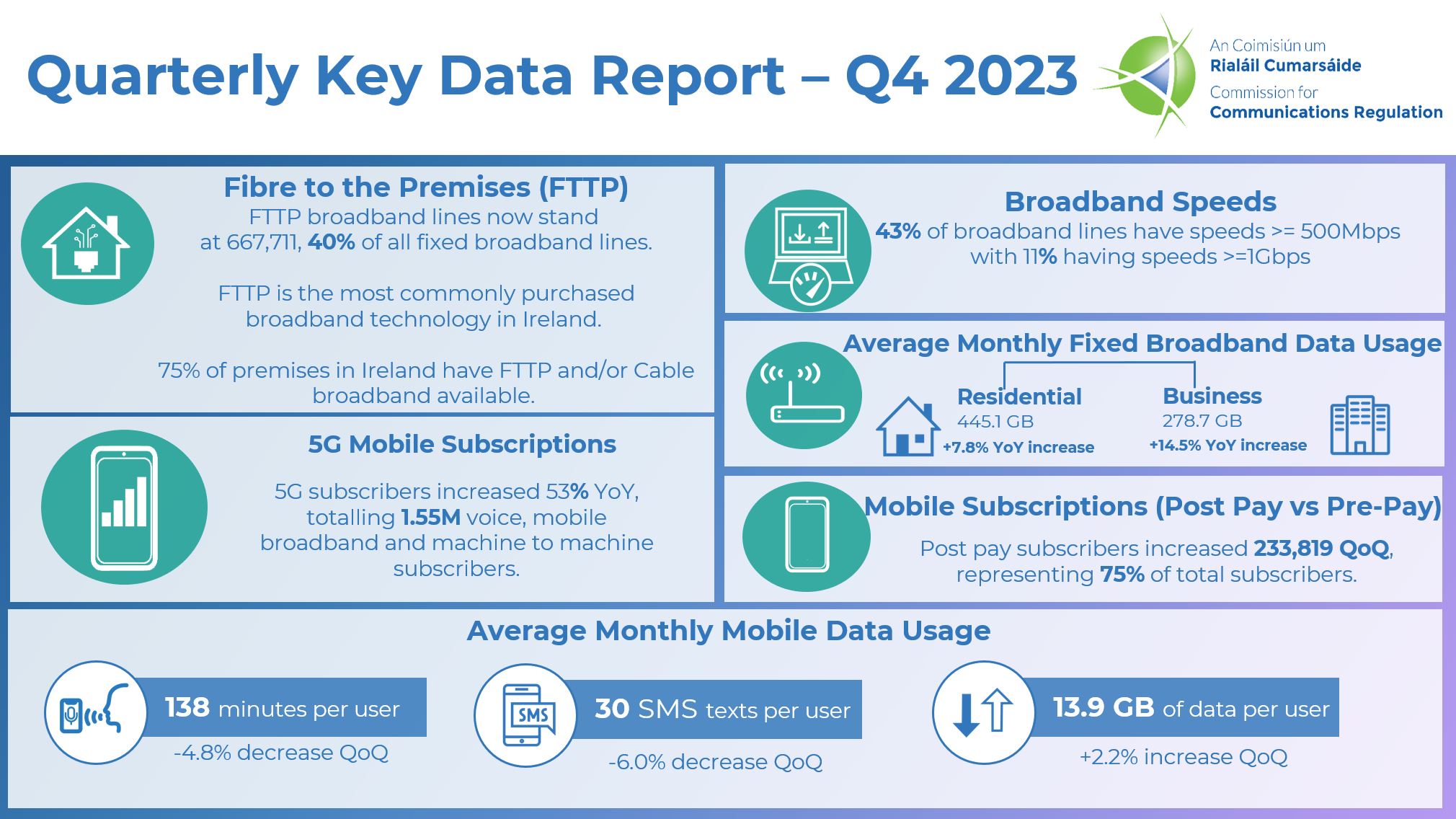
ComReg today published a consultation on network-based interventions to reduce the harm from scam calls and texts.
These scams are a blight on society and cause significant financial and economic damage to all sectors of society including consumers, business, and public bodies. Scams also diminish the trust placed by consumers and businesses in calls and SMS, thereby undermining the benefits of such services. The prevalence of scam calls and SMS has increased in recent years, with the vast majority of mobile users reporting to have received scam calls or SMS.
Research commissioned by ComReg provides the first insight into the harms caused by scam calls and SMS texts. This research indicates that in 2022 alone in Ireland there were:
- approximately 365,000 cases of fraudulent scams
- up to 89 million annoying/irritating communications and 31 million distressing communications.
- over 5,000 businesses that were the victim of fraud after receiving scam calls and texts
Overall, the total quantifiable harm to Ireland’s society arising from nuisance communications is conservatively estimated at over €300 million per annum – 38% (€115m) due to scam SMS texts and 62% (€187m) due to scam calls.
To combat scams, ComReg is proposing to require operators to implement a number of technical interventions to combat scam calls and texts:
- Fixed CLI (Calling Line Identification) Call blocking: To stop fraudsters abroad spoofing Irish geographic numbers (e.g., 01-xx) to make scam voice calls.
- Mobile CLI Call Blocking: To stop fraudsters abroad spoofing Irish mobile numbers (e.g., 087-xx) to make scam voice calls.
- A Protected Number list: To stop fraudsters using numbers that are not yet in service or have yet to be allocated to a telecoms operator prior to entering service.
- Do-Not-Originate list: Allows businesses/organisations to secure their numbers by blocking those numbers not used to contact consumers.
- A SMS Sender ID Protection Registry: Allows businesses/organisations to register a SMS Sender ID (g. ‘HSE’ or ‘An Post’) while blocking those that are not on the Register.
- Voice-firewall: To block spam calls wherever they arise (i.e., Ireland or abroad) and protect against future more sophisticated scams.
ComReg also assessed a SMS Scam Filter: To block scam SMS and protect against future more sophisticated scams.
The overall benefit of the package of interventions, if implemented, would be in the order of €1.5 billion over the coming seven years while the benefits to society for each euro spent on the interventions is substantial and should bring €50 in economic and social benefit for every €1 spent.
The SMS Scam filter is an essential measure to prevent criminals from attempting to defraud Irish customers because, like the voice firewall, it is a dynamic intervention that reacts to the latest scams. However, this intervention requires legislative change and ComReg is engaging with its parent department, the Department of the Environment, Climate and Communications (“DECC”) in taking this forward. ComReg notes that there is a compromise here between privacy and fraud prevention but considers the measures to be proportionate given it is aimed at stopping this very serious fraud.



